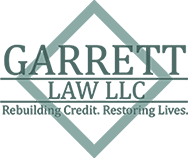

Topeka Nondischargeable Debts Lawyer
Highly-Qualified Topeka Bankruptcy Attorney
The main purpose of bankruptcy is to give honest debtors a fresh start. However, a fresh start does not necessarily mean debt-free. Certain debts are not discharged by bankruptcy and you will remain obligated to pay them after your bankruptcy case is complete.
The following is a list of common debts that are not generally discharged in Chapter 7 or Chapter 13. Keep in mind this is not an exhaustive list, as there are additional nondischargeable debts. Also, keep in mind that there are certain exceptions that may allow a generally non-dischargeable debt to be discharged.
Set up a free consultation today—(888) 253-4526 or send us a message online!
What Is Considered Non-dischargeable Debt?
Pay special attention to the following debts:
- Recent taxes
- Other government debts
- Student loans
- Child support and spousal maintenance
- Restitution
- Court fees
- Damages related to DUI
- Debts incurred by fraud
- Debts not listed in the bankruptcy
Understanding Nondischargeable Debt in Chapter 7
If you file a Chapter 7 bankruptcy, you will remain obligated to pay all nondischargeable debts after your case is complete, just as if you never filed for bankruptcy.
Nondischargeable Debt in Chapter 13
For this reason, opt to file a Chapter 13 when they owe certain nondischargeable debts such as:
- Recent taxes
- Child support
- And spousal maintenance
They can then pay the debts in installments over a period of three to five years. Talk with our Topeka bankruptcy attorney to figure out which of your debts are dischargeable and whether Chapter 7 or Chapter 13 is best for your situation.
What Do I Do With My Nondischargeable Debt?
In order to fully realize the benefits of bankruptcy and to avoid further financial difficulties, you need to have a game plan for dealing with these nondischargeable debts after bankruptcy.
When your bankruptcy is complete, it is best to be proactive in dealing with any debts that remain after receipt of your discharge. Keep in mind that interest continues to accrue on debts while you are in bankruptcy and the longer you take to pay them off the more you will end up paying.
You may receive a notification or bill from the creditor after bankruptcy. Do not ignore these communications.
If you cannot afford the amount requested, contact the creditor or collector to arrange monthly payments that work for your budget. The creditor is more likely to work with you if you show a willingness and desire to pay the debt and you follow through with your promises.
Post-Chapter 13 Bankruptcy: What to Expect
It's a common belief that a Chapter 13 Plan will take care of your debt so you are only left with a home mortgage and student loan payments after completion of your Chapter 13 Plan. Unfortunately, it's not quite that simple--there are a few debts that catch many by surprise. Watch out for these snakes in the grass.
Even if you pay your taxes through a Chapter 13 Plan, interest on the debt continues to accrue while you make your payments. Any interest that accrues after the date you filed your bankruptcy case will not be paid through your Plan. Expect to get a bill from the taxing authority after your case is complete.
Both the Internal Revenue Service and the Kansas Department of Revenue will accept monthly payments. Contact them as soon as possible to set up payments.
If you do not make payment arrangements or fail to respond to their requests, you can expect further collection actions, including:
- Setoff of your tax refunds
- Levies
- And liens
Ready to tackle your debts? Schedule a free consultation today—(888) 253-4526 or send us a message online!
What About Unemployment Compensation?
Generally, unemployment compensation overpayments are discharged by bankruptcy; however, Kansas law gives the Kansas Department of Labor (KDoL) the right to recover the debt from future unemployment benefits, regardless of the bankruptcy discharge.
There is no statute of limitations on recovery of these debts and KDoL is allowed to charge interest. Since KDoL is prohibited from contacting you in an attempt to collect the debt as a result of the bankruptcy discharge, you may not find out about your obligation until the next time you apply for unemployment compensation.
In order to avoid additional interest accruing in the meantime, you can contact KDoL to set up payment arrangements. Taking initiative to pay off a debt to a governmental entity goes a long way.
They are more likely to accept a lower payment amount and may even reduce your balance or interest due if you show a good faith effort to pay off the debt.
For answers to your questions about nondischargable debt, set up a free consultation today—(888) 253-4526 or send us a message online!

-
“Absolutely enjoyed working with Garrett Law, him and his staff were wonderful through the process and very knowledgeable.”
Contact Garrett Law LLC Today!


